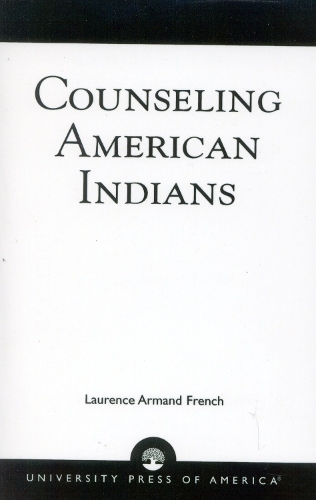
Counseling American Indians
(Paperback)
Publishing Details
Counseling American Indians
By (Author) Laurence Armand French
University Press of America
University Press of America
1st February 1997
United States
Classifications
Tertiary Education
Non Fiction
Indigenous peoples / Indigeneity
362.20425608997
Physical Properties
Paperback
216
Width 137mm, Height 217mm, Spine 17mm
295g
Description
American Indians have a cultural tradition which differs markedly from that of Western societies. Known as the Harmony Ethos, traditional (aboriginal) Indian cultures rely heavily on intragroup cooperation not only between humans but with all elements of nature. In contrast, Western societies tend to socialize their members to be competitive and independent regarding interpersonal relations while, at the same time, assuming a position of superiority regarding all other aspects of nature. This is known as the Protestant Ethic. Theories and techniques of counseling are, for the most part, grounded in the values of Western societies with therapists and counselors assuming that all their clients have been socialized within the Protestant Ethic. Unmodified, these clinical assumptions rarely apply to traditional American Indian clients. This book provides examples of culturally-relevant clinical adaptations as they apply to the largest Indian groups in the U.S.the Navajo, Cherokee and Sioux. It also addresses the most severe mental disorders afflicting American Indians todaythose of substance abuse and fetal alcoholism. This book provides historical and cultural foundations relevant to the traditional Navajo, Cherokee and Sioux, giving a basis for the culturally-specific clinical adaptations that are presented here. The unique therapy adaptations include cultural bibliotherapy for children and youth; a PanIndian synthesis of substance abuse therapy for Indian youth; survival therapy for Plains Indian adults and the use of the Navajo Beauty Way clinical model.
Author Bio
Laurence Armand French is Professor of Psychology at Western New Mexico University in Silver City, New Mexico and Clinical Director at the Safford Care Center in Safford, Arizona.
